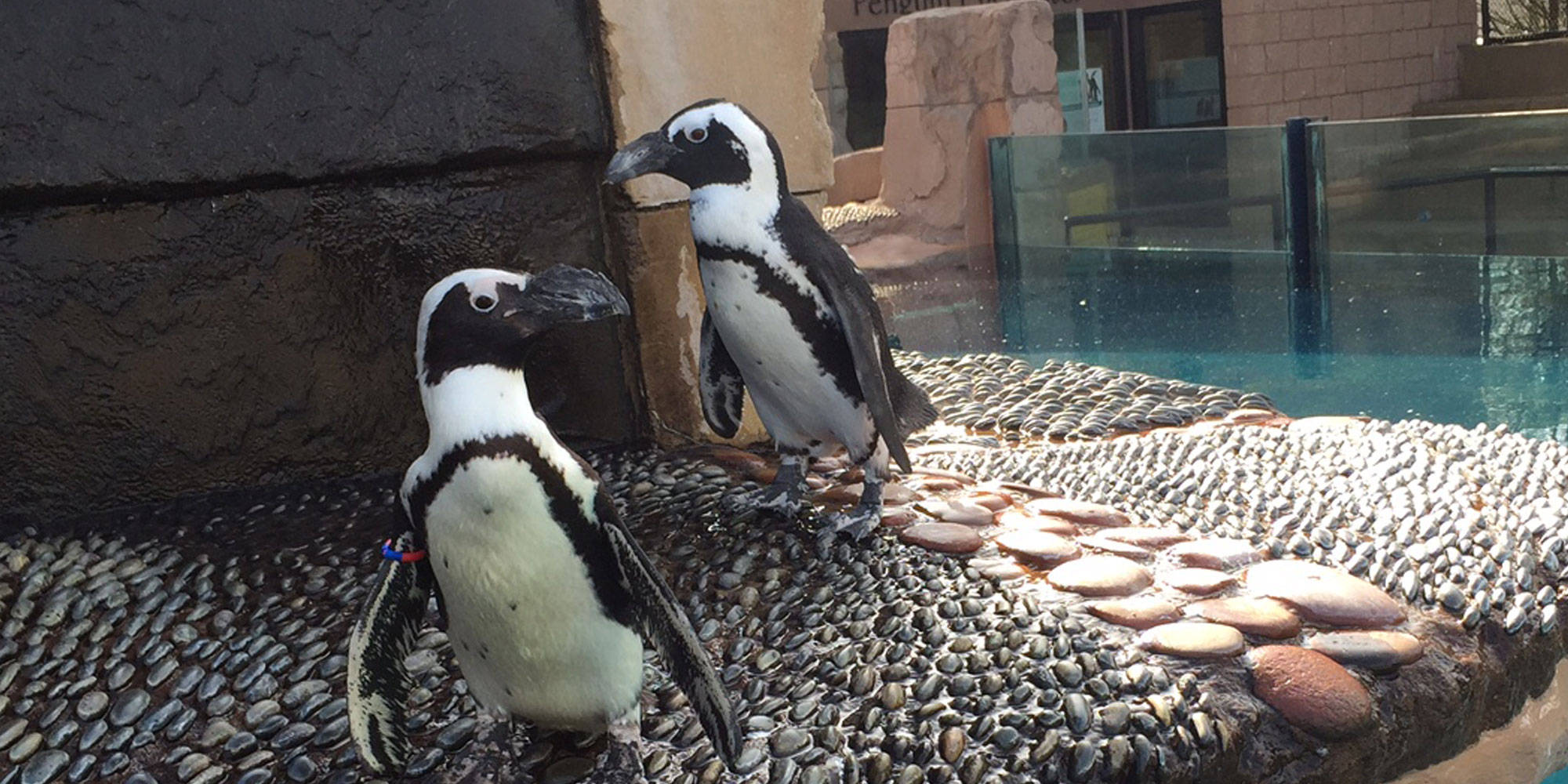The Long Island Aquarium is implementing measures to protect our endangered African penguins from highly pathogenic avian influenza (HPAI), found on Long Island, near our aquarium. HPAI is a disease carried by birds, most often migratory waterfowl, and can be fatal to many species. The virus does not spread easily from animals to humans.
In response to the deadly Avian Flu, we are working under the direction of and in coordination with state and federal agencies and our head veterinarian to ensure the safety of our penguin colony and all of our animals.
Because of a recent detection in Suffolk County, our veterinarian has requested additional modifications to the Penguin Pavilion habitat. Those modifications are under way and we hope to have our penguins back outside soon (weather allowing, they cannot be outside if it is under 30 degrees).
Our animals are currently safe and healthy, and we are implementing these procedures to protect them from any potential exposure. We’ll continue to monitor the situation closely with state and local officials and make all recommendations to protect our collection of animals.
Long Island Aquarium’s year-round Penguin Pavilion provides an Atlantean home to our African penguins (Spheniscus demersus). This exhibit provides both land and water features for the birds, as well as hutches in the back wall for shelter, nesting, and breeding. Get a penguin-eyed view of the exhibit from our observation bubble!
Native to Namibia and South Africa, African penguins are adapted to live on land as well as in the sea. A streamlined body shape, dense feathers, and wings modified into flippers allow these birds to dive deep into the sea where they hunt several different types of fish and marine invertebrates. Unfortunately, their numbers are dwindling in the wild. In the early 1900s, the population has been estimated at 1.5 million; today, around 44,000 are thought to remain in the wild. Pollution, hunting, over-fishing and habitat loss have seriously hindered populations of this now an endangered bird.
The original colony of African penguins exhibited here were captive-bred in South Africa and imported illegally into the US. They arrived at the Long Island Aquarium in April 2004 after the US Fish and Wildlife Service reached out to the Aquarium to provide the birds with a new home.
African Penguin
Scientific Name: Spheniscus demersus
Weight: 5-8 pounds.
Height: about 25 inches.
Lifespan: 15-30 years.
Range: Namibia and South Africa
Habitat: rocky South African shorelines
Please be advised that the African Penguins will be off habitat when the temperatures drop below 30 degrees. They are visible in their back holding area, but they would not be outside on habitat when it is that cold.


